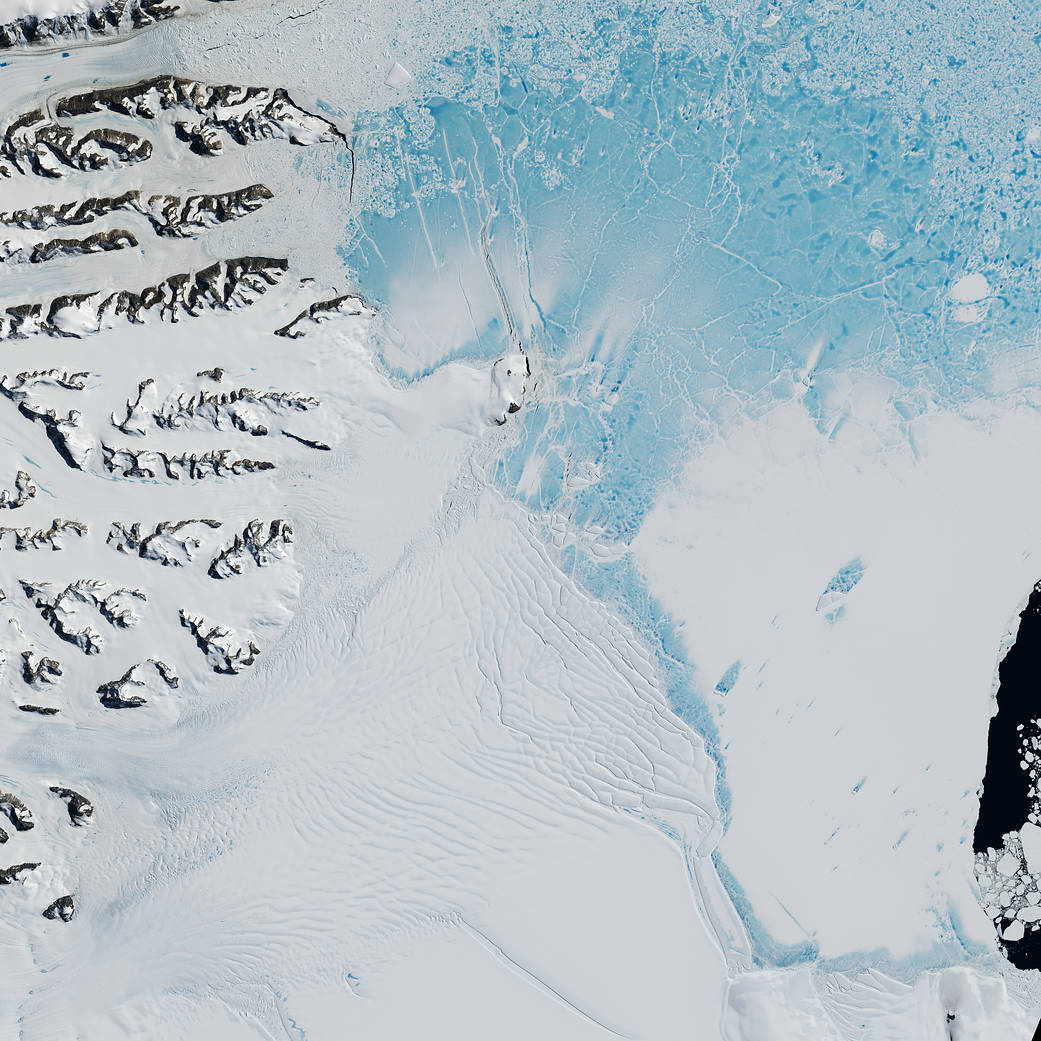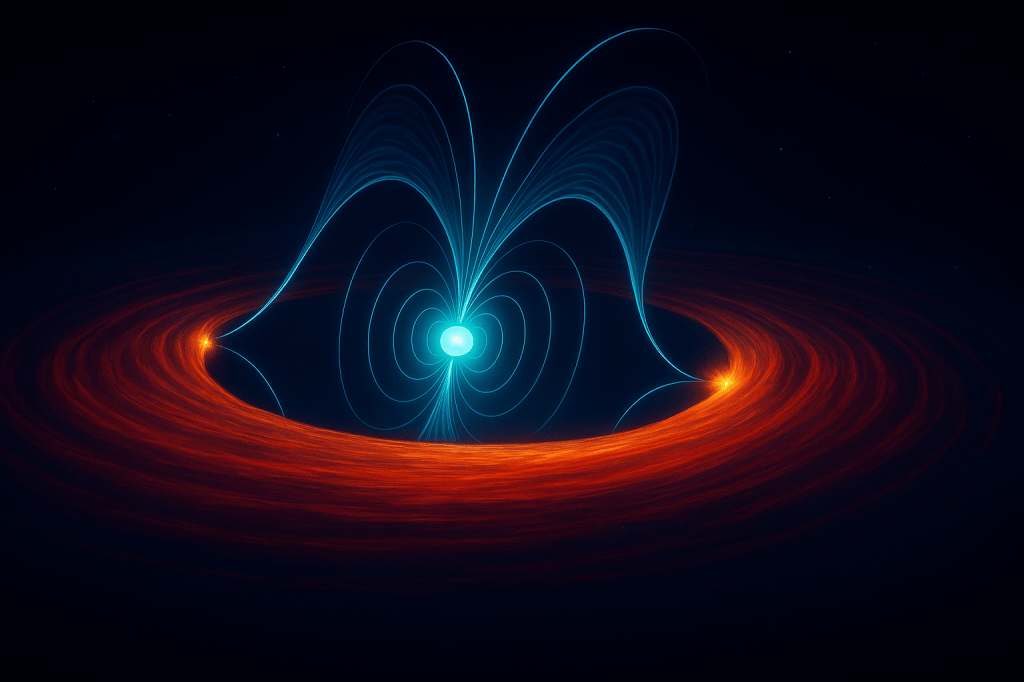
The Larsen Ice Shelf is situated along the northeastern coast of the Antarctic Peninsula, one of the fastest-warming places on the planet. In the past three decades, two large sections of the ice shelf (Larsen A and B) have collapsed. A third section (Larsen C) seems like it may be on a similar trajectory, with a new iceberg poised to break away soon.
The mosaic above, centered on the northern part of Larsen Ice Shelf, is comprised of four natural-color satellite images captured by the Operational Land Imager (OLI) on Landsat 8 on Jan. 6 and 8, 2016. It shows the remnant of Larsen B, along with the Larsen A and smaller embayments to the north covered by a much thinner layer of sea ice. The remaining shelf appears white with some deep rifts within it.
Areas with sea ice anchored to the coastline or ice shelf—fast ice—are light blue where covered with melt water and white where covered by wind-blown snow. The ocean is dark, nearly black, where it is not covered by sea ice. The white areas near where glaciers meet the sea have multitudes of small icebergs called bergy bits that broke off from land ice.
Extended caption and annotated images: NASA’s Earth Observatory
Image Credit: NASA Earth Observatory image by Jesse Allen, using Landsat data from the U.S. Geological Survey
Caption: Adam Voiland

























